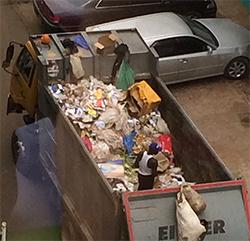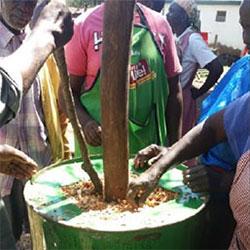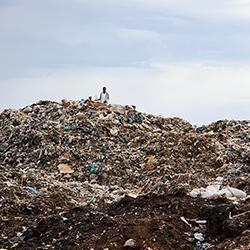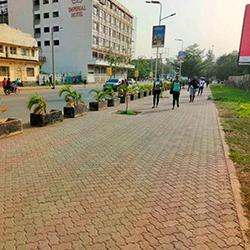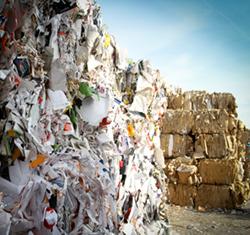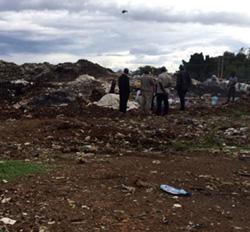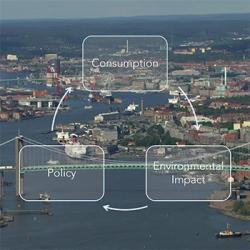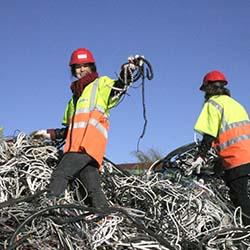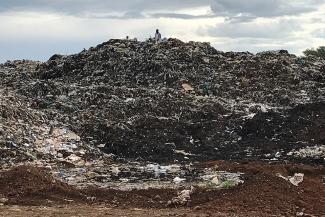
Solid Waste Management
With the rapidly increasing world population and urbanisation, solid waste management continues to be a major concern to most cities. An effective framework for solid waste management to cope with the increasing waste volumes, changing quality of waste generated and disposal techniques is necessary to ensure sustainability. The flow of waste material and the opportunities for improvement form the basis for the project.
For the last two years (2017-2018) Mistra Urban Futures under the Solid Waste Management comparative research project involving the platforms in Skåne and Kisumu considered solid waste management practices in two cities; Kisumu in Kenya and Helsingborg in Sweden reflecting diverse experiences and trends worth considering for sustainability at both local and global fronts.
With preferred management actions based on waste management hierarchy (waste prevention as preferred option, followed by reuse, recycling, recovery including energy recovery and safe disposal as a last option) and strategies guided by principles of Integrated Solid Waste Management (strategic approach covering all sources and all aspects, including generation, segregation, transfer, sorting, treatment, recovery and disposal in an integrated manner to maximize resource use efficiency), economic incentives with both social and environmental benefits motivates waste actors, activates innovativeness and strengthens partnership amongst them increasing their contribution towards sustainable management.
The research activities and collaborations are carried out in a transdisciplinary environment and incorporate academia, public sector (city management and county officials), private sector, civil society and the community. This is to facilitate effectiveness in policy lobbying and advocacy, institutional strengthening at all levels, enhanced engagement of partners and stakeholders in value chains and knowledge management.
Project objectives
• To present potential business opportunities in solid waste management for sustainable solid waste management.
• To use multi-criteria analysis approach for decision making in the selection of sustainable waste management technologies for a city.
Project activities
Research activities for 2019 will therefore address the practicality of a business model, presenting business opportunities as incentives for sustainability at the local scales based on various Waste Management services and products from waste resources. At the lower ends of the Waste Management chain; the activities will consider Solid Waste treatment technology options (open dumping, conventional landfill, landfill with gas extraction, incineration etc.), and demonstrate how a multi-criteria analysis approach can aid decision making processes and knowledge generation at city levels based on parameters reflecting both local and global effects.
Usefulness
The current research activities are designed to achieve effective knowledge co-production to ensure sustainable urban development by contributing towards effective and sustainable waste resource management systems and networking, creation of a resource centre for waste management technology and collaboration among various stakeholders within the waste management value chain.
